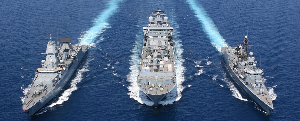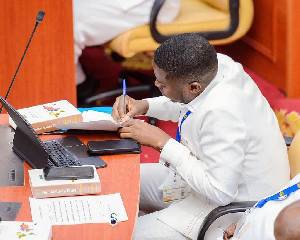The European Union (EU) has funded and concluded an enhanced maritime action (EnMAR) training in the Gulf of Guinea for 15 port security officials from West and Central Africa.
The five-day regional train the trainers programme, which was on ‘Port Security’, focused on the guidelines of section 18.2 of the International Ship and Port Facility Security (ISPS) Code.
The EnMAR’s objective is to enhance maritime security and safety in the Gulf of Guinea through promoting political dialogue, improving the coherence of EU security initiatives and strengthening operational capacities of national and regional institutional partners.
More importantly, it aims to curb the burden of piracy and security costs. For instance, the United Nations Office on Drugs and Crime (UNODC) has reported that the direct and indirect costs of piracy and security threats in the Gulf of Guinea are enormous – totalling US$1.9billion per year.
The UNODC highlighted that Gulf of Guinea governments spend more than US$524million annually to reduce piracy and armed robbery, focusing on these specific costs in recent years.
In relation to the menace, Deputy Ambassador at the EU Delegation to Ghana, Jonas CLAES, underscored the need to ensure security in the Gulf of Guinea to enhance trade in the sub region.
“The issue of port security is an important and strategic topic in view of the potential linkages with global trade, organised crime and security,” he said at the training’s closing session in Accra.
CLAES disclosed that feedback received from Tema Port upon a visit during the training programme, showed that the Ghana Ports and Harbours Authority is abreast with recent security mitigation measures.
Programme Manager of the EU- EnMAR project at Expertise France, Marie Gibrat, explained the training was the last of series of four regional sessions for port stakeholders of West and Central Africa.
“We were first in Douala to discuss cybersecurity in February, then we exchanged on crisis management in Abidjan in March; lastly, we learned about the management of dangerous goods in Pointe-Noire in the Republic of Congo at the last session in Accra,” she said.
Madam Gibrat said the EU is fervently looking forward to a new West and Central Africa Port Security (WeCAPS) project that is under discussion in Brussels.
General Manager-Special Duty, GPHA, Captain James Quayson mentioned that sharing experience between harbour masters and port facility security officers from different ports in the Gulf of Guinea at the training was an immense experience.
Business News of Friday, 28 June 2024
Source: thebftonline.com

















